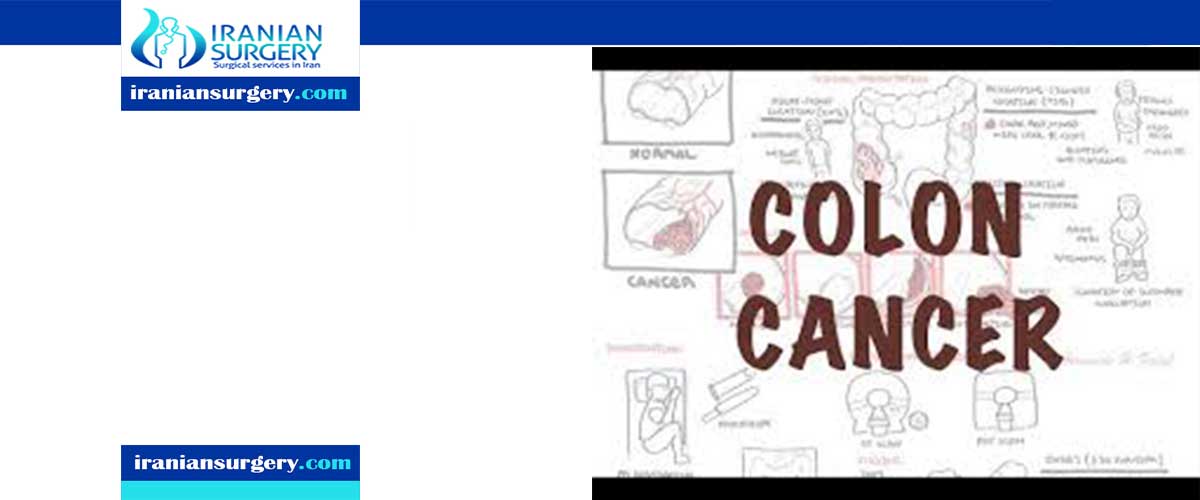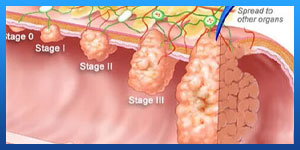How you can Prevented from Colorectal Cancer?

Can colorectal cancer be prevented?
What can you eat to prevent colon cancer?
What is the main cause of colorectal cancer?
How can I prevent prostate and colon cancer?
How you can Prevented from Colorectal Cancer?
Cancer prevention is action taken to lower the chance of getting cancer. By preventing cancer, the number of new cases of cancer in a group or population is lowered. Hopefully, this will lower the number of deaths caused by cancer.
Different ways to prevent cancer are being studied, including:
- Changing lifestyle or eating habits.
- Avoiding things known to cause cancer.
- Taking medicines to treat a precancerous condition or to keep cancer from starting

Avoiding risk factors and increasing protective factors may help prevent cancer.
The following protective factors decrease the risk of colorectal cancer:
- Eat a variety of fruits, vegetables and whole grains. Fruits, vegetables and whole grains contain vitamins, minerals, fiber and antioxidants, which may play a role in cancer prevention. Choose a variety of fruits and vegetables so that you get an array of vitamins and nutrients.
- Drink alcohol in moderation, if at all. If you choose to drink alcohol, limit the amount of alcohol you drink to no more than one drink a day for women and two for men.
- Stop smoking. Talk to your doctor about ways to quit that may work for you.
- Exercise most days of the week. Try to get at least 30 minutes of exercise on most days. If you've been inactive, start slowly and build up gradually to 30 minutes. Also, talk to your doctor before starting any exercise program.
- Maintain a healthy weight. If you are at a healthy weight, work to maintain your weight by combining a healthy diet with daily exercise. If you need to lose weight, ask your doctor about healthy ways to achieve your goal. Aim to lose weight slowly by increasing the amount of exercise you get and reducing the number of calories you eat.
Read more about : Metastatic myxofibrosarcoma treatment with the best Iranian oncologist surgeon
Can colorectal cancer be prevented?
There's no sure way to prevent colorectal cancer. But there are things you can do that might help lower your risk, such as changing the risk factors that you can control.
Read more about : What is colorectal cancer?
Read more about : Signs a fissure is healing
Read more about : Foods that cure fissures
Read more about : Anal abscess treatment
Read more about : colorectal cancer risk factors
Read more about : colorectal cancer treatments
What can you eat to prevent colon cancer?
Diet Plays a Role
Colorectal cancer is the third most common type of cancer for both men and women. Smart food choices may help you lower your chances of getting it. Some studies say that people who eat right, exercise, stay a healthy weight, and keep alcohol to a minimum may cut their odds of the disease by more than a third.
Eat: Dairy
Most studies agree that calcium-rich dairy products can make you less likely to have colon growths (called adenomas) and colorectal cancer. Calcium supplements may also be helpful. Ask your doctor what might be right for you. Vitamin D (which is added to milk) might also protect against this type of cancer, but more research is needed.
Eat: Whole Grains
These are packed with nutrients and are good sources of magnesium and fiber. They keep your stools moving, and along the way, they may grab onto cancer-causing compounds in your colon. Aim for 90 grams of whole grains daily oatmeal, whole wheat bread, and brown rice are good options.
Eat: Beans
These and other legumes (soybeans, peas, and lentils, for example) are packed with fiber, protein, and vitamins B and E. They also have compounds called flavonoids, which can keep tumors from growing, as well as certain antioxidants that may help protect you from colon cancer. Try swapping out one of your usual side dishes for black beans, or make a hearty soup.
Eat: Colorful Fruits and Veggies
These have natural substances (phytochemicals) that may block the growth of cancer cells or fight the inflammation that can fuel cancer. Studies linking fruits and veggies to preventing colon cancer have been mixed, but cancer organizations recommend them as part of a healthy diet. Your best bets include broccoli, cabbage, and vitamin-C rich fruits like oranges.
Eat: Fish
Fatty ones like salmon are rich in omega-3 fatty acids, which is great for heart health and may slow the growth of cancer cells. But whether eating fish can help keep you from getting colorectal cancer isn’t clear. Some research did find that people who ate fish instead of red meat were less likely to get rectal cancer. But limit swordfish, tuna, tilefish, shark, and king mackerel. They may have mercury and other pollutants that can harm your health over time.
Limit: Red Meat
A juicy burger hot off the grill may tempt your taste buds, but it can be bad news for your colon. Scientists know that a regular diet of red meat, like beef, pork, and lamb, can make you more likely to get colorectal cancer, but they aren’t sure why. It may because of the meat itself, or cancer-causing substances may form when it’s cooked over high temperatures. Aim for fewer than 18 ounces a week.
Limit: Processed Meats
These are meats that are smoked, cured, or salted, or preserved with added chemicals. Think hot dogs, bacon, ham, bologna, and packaged lunchmeat. Eating those kinds of meats often can up your chances of both colon and stomach cancer.
Limit: Alcohol
One drink every now and then doesn’t seem to affect your odds of colon cancer. But moderate to heavy drinking (two or three glasses a day) can make you 20% more likely to get it, and heavy drinking can raise your chances by 40%. If you often have more than three drinks a day, talk to your doctor about screening for colorectal cancer.
Other Possibilities
We don't know whether these common foods and drinks play roles in causing or preventing colorectal cancer: coffee, tea, caffeinated beverages, sugary foods, potatoes, and garlic, among others. Researchers continue to study the link between diet and colorectal cancer, so there’s likely more to come.
Read more about: Early symptoms of colon cancer
Read more about: Colorectal surgery
Read more about: Colorectal Cancer Pathophysiology
What is the main cause of colorectal cancer?
The exact cause of colorectal cancer is not known, but certain risk factors are strongly linked to the disease, including diet, tobacco smoking and heavy alcohol use. Also, people with certain hereditary cancer syndromes or a family history of colorectal cancer have a high risk of developing the disease.
Read more about: colorectal cancer age
Read more about: Colorectal Cancer Recovery
How can I prevent prostate and colon cancer?
There is no sure way to prevent prostate cancer. Many risk factors such as age, race, and family history can’t be controlled. But there are some things you can do that might lower your risk of prostate cancer.
Read more about: Colon cancer
Read more about: Colon cancer treatment in Iran
Read more about: Colonoscopy in Iran

